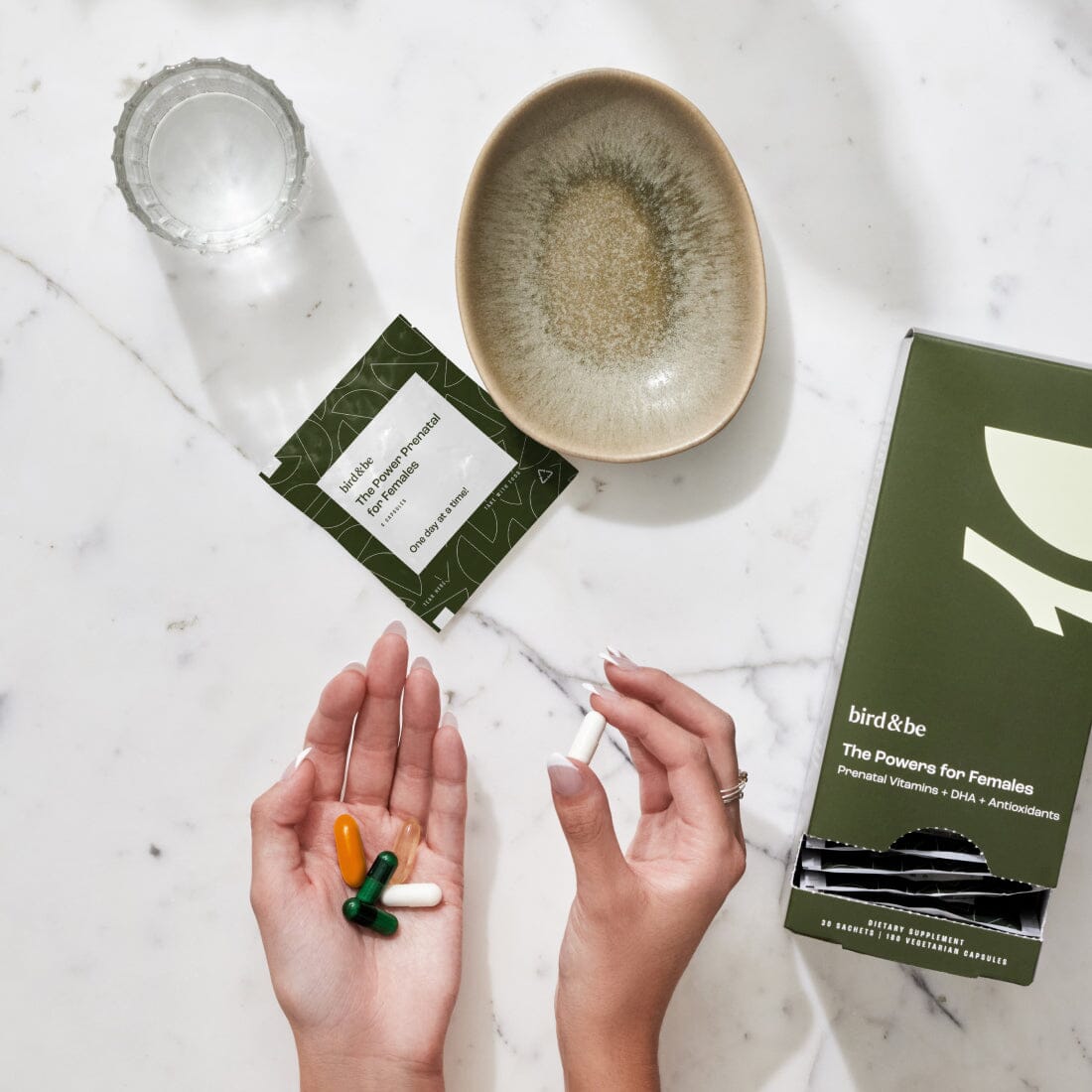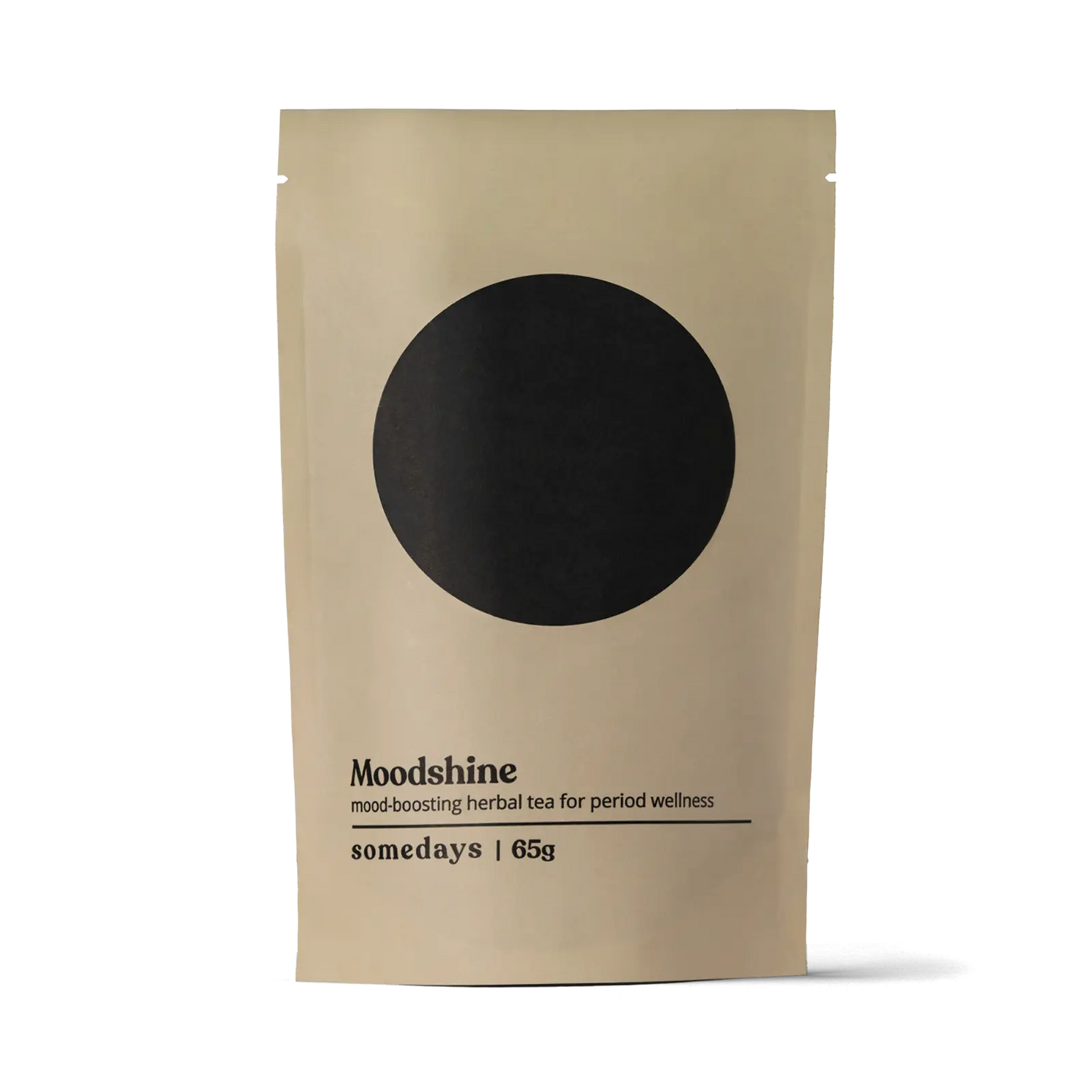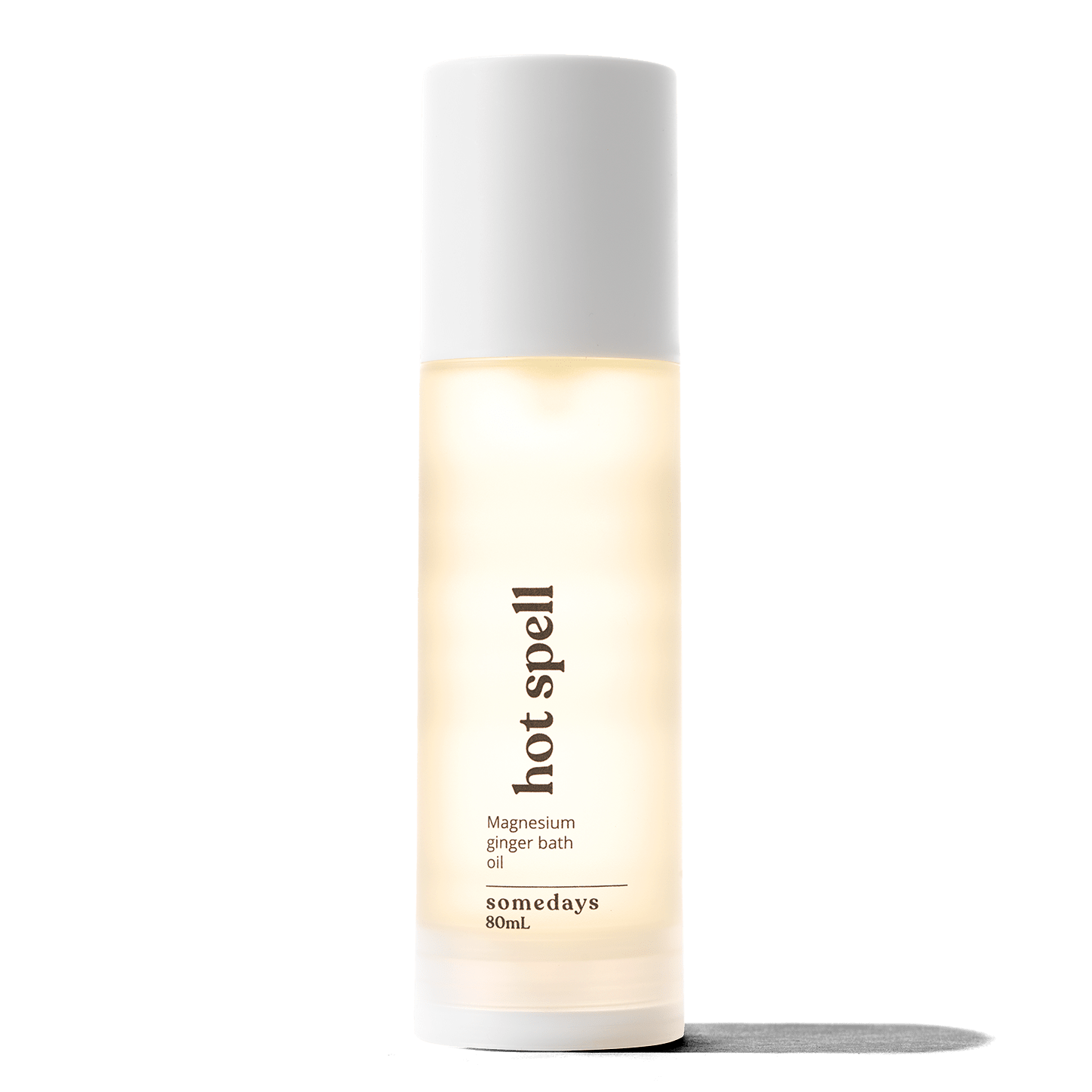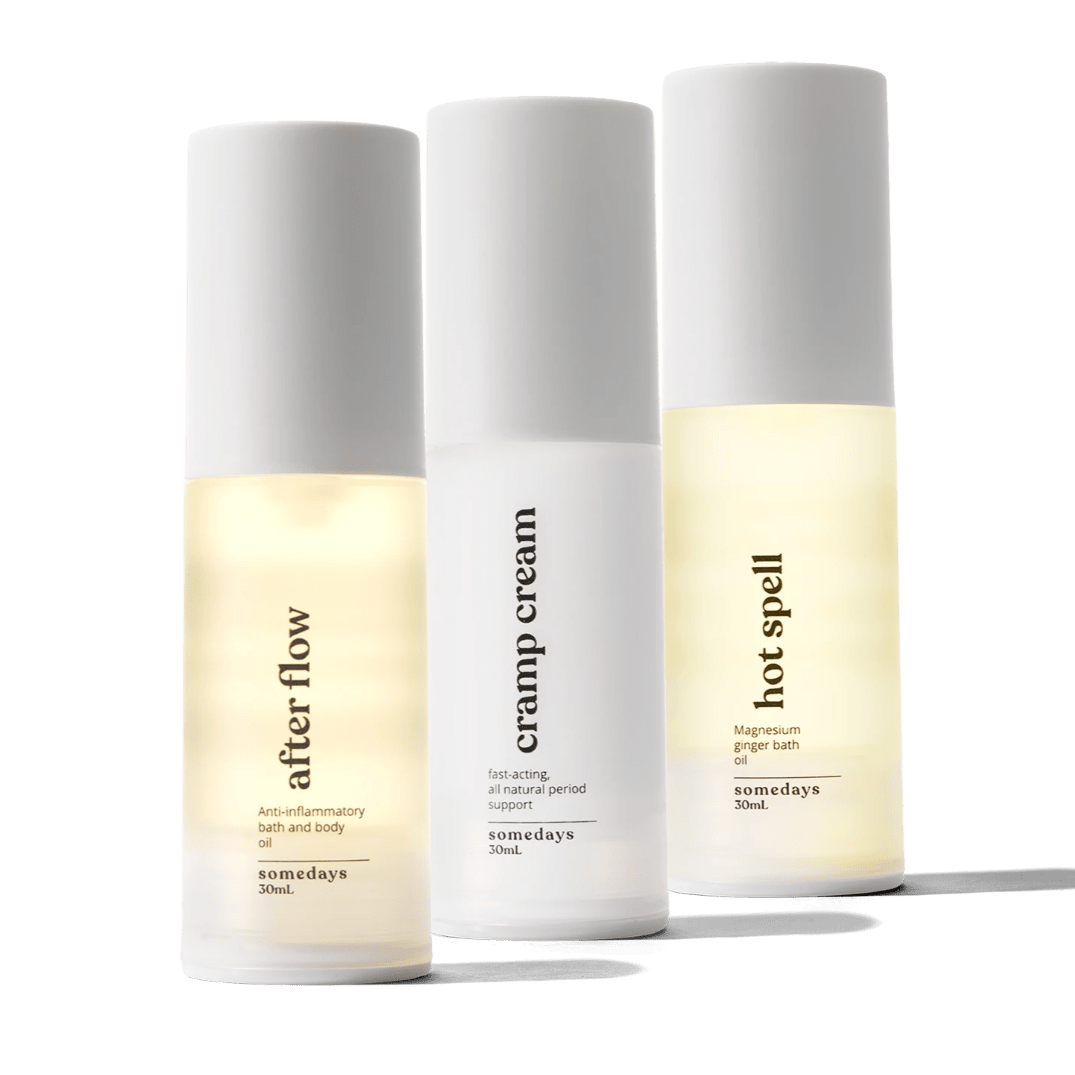The Best Supplements for Endometriosis

Endometriosis can be a *literal* pain in the butt. It’s an under-studied, under-diagnosed, and under-treated condition affecting around 10% of people with a uterus. Endometriosis is best known for causing pelvic pain, period pain, heavy menstrual bleeding, and pain during sex. But it can also cause more systemic symptoms like chronic fatigue, neuropathic pain (tingling, numbness, shooting pain), bladder changes, IBS-like symptoms, and infertility. So it makes sense that we’re looking for ways to manage symptoms, from dietary and lifestyle changes to pharmaceutical options to supplements for endometriosis.
The cause of endometriosis is still being fully understood, but we do know it’s a chronic inflammatory disease characterized by the presence of endometrial-like tissue outside the uterus (think around the ovaries, fallopian tubes, bladder, and bowls). Supplements with anti-inflammatory, antioxidant, anti-proliferative, and immune modulatory effects show benefits for reducing the severity of symptoms and occasionally even the progression of endometriosis.
Here are some of the best-studied and most effective supplements to consider adding to your endometriosis care plan.
Vitamin D
Vitamin D is found in foods like fatty fish (salmon, tuna, and mackerel), liver, egg yolks, and cheese. It can also be synthesized on the skin with exposure to UVB rays (sunshine!). Unfortunately, many of us who live in North America are low in the sunshine vitamin, and women with endometriosis have even lower Vitamin D levels than the general population. There appears to be a negative relationship between Vitamin D levels and the severity of symptoms; the lower the Vitamin D the worse the endometriosis. And having low Vitamin D levels is a probable risk factor for endometriosis.
When women with endometriosis supplement with Vitamin D there is a significant improvement in pelvic pain. To see these results though, you’ll need to supplement under the guidance of a doctor because of the high doses (in this study, the dose was 50,000 IU weekly for 12 weeks). But in the meantime, you can make sure you’re not deficient in Vitamin D by taking a supplement—Bird&Be’s Calcium + Magnesium + Vitamin D Boost is a vegan form of bioavailable D3 and is paired with minerals Calcium and Magnesium because all three work their best when taken together.
Omega-3 Fatty Acids
Polyunsaturated fatty acids (PUFAs), particularly the Omega-3 fatty acids EPA and DHA have potent anti-inflammatory benefits. Getting enough of these healthy fats can help with inflammation, reducing pain. When it comes to endometriosis, women with the highest intake of Omega-3 fatty acid consumption were 22% less likely to be diagnosed with the condition compared to those with the lowest intake. Getting Omega-3s from your diet is great, but it can be hard to eat enough to get that therapeutic dose of at least 2 grams per day of EPA and DHA (especially if you don’t eat fish)—this is where supplementing comes in.
N-acetylcysteine (NAC)
NAC is a precursor to one of the body’s most powerful antioxidants, glutathione, and is used to treat a host of conditions from asthma and bronchitis to reproductive conditions like PCOS and recurrent pregnancy loss. In endometriosis, NAC effectively reduces endometriosis-related pain and the pain medication needed to manage symptoms. It’s also been shown to prevent the progression of endometrial lesions and can reduce the size of endometriomas (also known as chocolate cysts) and serum levels of Ca125 (a blood marker often elevated in endometriosis).
About 30 to 50% of women with endometriosis experience infertility, and NAC has been shown to improve fertility outcomes making it an important supplement for those who are trying to conceive, especially if they have endometriosis.
Find Omega-3 and N-acetylcysteine (NAC) among other fertility-friendly nutrients in Bird&Be’s The Power Prenatal for Females.
Melatonin
Well known for its ability to promote deep and restful sleep, melatonin is so much more than a sleep aid—it’s also a potent antioxidant. Melatonin is used effectively for cancer care, to support egg quality in IVF cycles, and for pain reduction in endometriosis and dysmenorrhea (period pain).
With regular melatonin use women with endometriosis experienced a 40% reduction in their daily pain scores and pain with menstruation (and an 80% reduction in the use of pain medication!). Melatonin can also decrease estrogen’s effects on endometrial lesions which slows growth or proliferation.
Antioxidants
A recent meta-analysis shows that antioxidant supplementation significantly improved pelvic pain in women with endometriosis. Antioxidants quench reactive oxygen species (ROS) and free radicals that cause cellular damage and the growth of endometriosis lesions. While this is a broad category and many of the supplements discussed above have antioxidant activity (like NAC and melatonin), a few other antioxidants deserve honorable mention.
The combination of 1,000 mg of Vitamin C and 800 IU of Vitamin E has been shown to reduce pelvic pain, pain with intercourse, and pain with menstruation in patients with endometriosis after just 8 weeks of supplementation.
Alpha Lipoic Acid supplementation provides significant improvement in pain symptoms, increased quality of life, and improved sexual function making it a good option for people with endometriosis predominantly presenting with pain.
Resveratrol is well-known for being found in colored fruit skins (like blueberries and grapes) and for its potent antioxidant activity. When combined with the oral contraceptive pill for the treatment of endometriosis, 82% of patients reported complete resolution of dysmenorrhea and pelvic pain after just 2 months of use.
The bottom line? Antioxidant vitamins successfully reduce the intensity of dysmenorrhea, pain with intercourse and pelvic pain, and improve the quality of life in patients with endometriosis.
Find antioxidants like NAC, CoQ10 and Resveratrol in Bird&Be’s The Power Prenatal for Females
Join our Betterdays community - a weekly newsletter where we break down the latest (TLDR) news, research and breakthroughs related to your reproductive health—with a splash of humour to get you through the tough days.
Previous Article All Articles Next Article
All Articles


